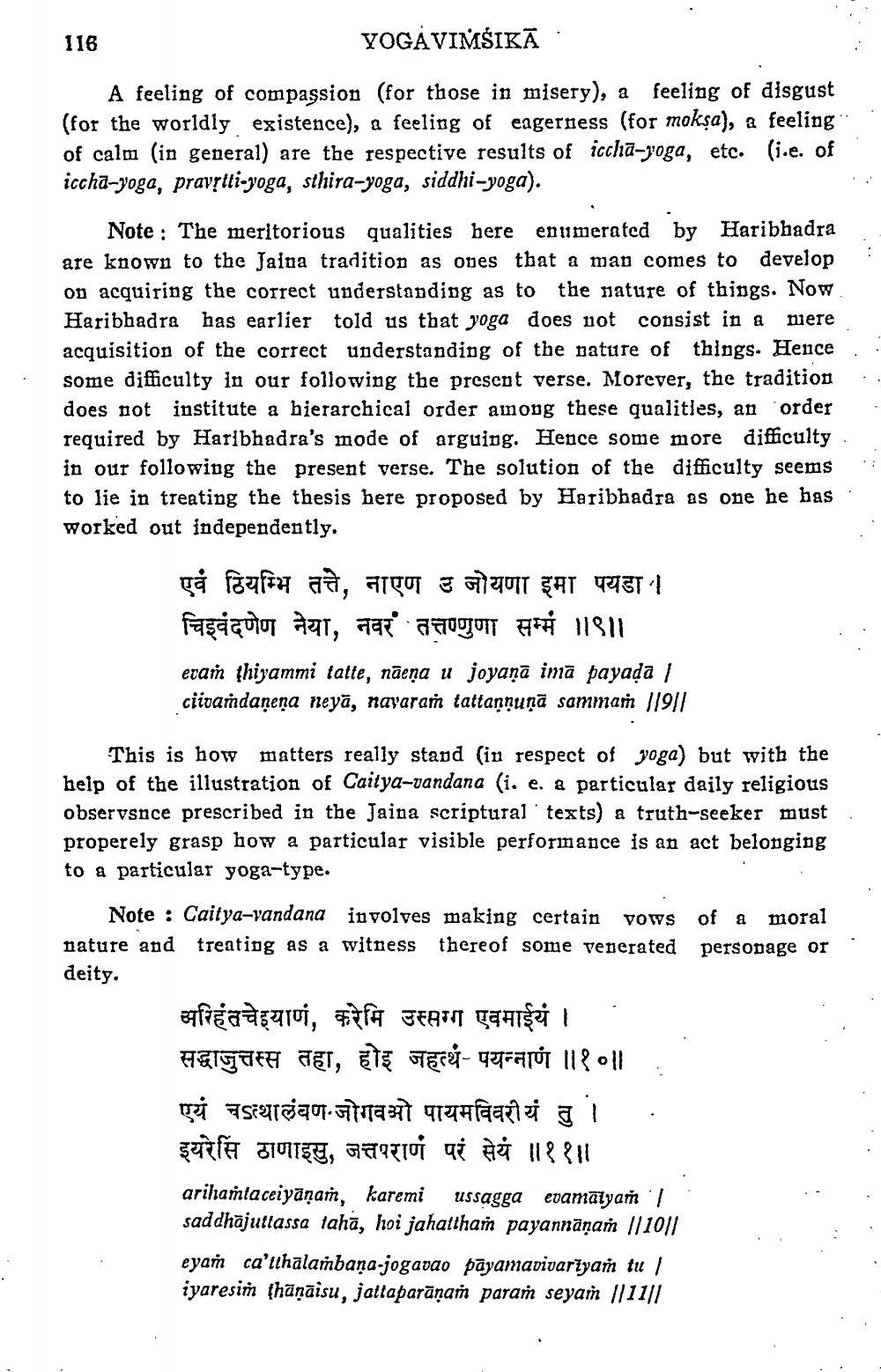________________
YOGAVIMŠIKĀ
A feeling of compassion (for those in misery), a feeling of disgust (for the worldly existence), a feeling of eagerness (for moksa), a feeling of calm (in general) are the respective results of iccha-yoga, etc. (i.e. of iccha-yoga, pravṛtti-yoga, sthira-yoga, siddhi-yoga).
116
Note: The meritorious qualities here enumerated by Haribhadra are known to the Jaina tradition as ones that a man comes to develop on acquiring the correct understanding as to the nature of things. Now Haribhadra has earlier told us that yoga does not consist in a mere acquisition of the correct understanding of the nature of things. Hence some difficulty in our following the present verse. Morever, the tradition does not institute a hierarchical order among these qualities, an order required by Haribhadra's mode of arguing. Hence some more difficulty in our following the present verse. The solution of the difficulty seems to lie in treating the thesis here proposed by Haribhadra as one he has worked out independently.
एवं ठियम्भि तत्ते, नाएण उ जोयणा इमा पयडा | चिइवंदणेण नेया, नवरं तत्तण्णुणा सम्मं ॥९॥
•
evam thiyammi tatte, nāeņa u joyaṇā imā payaḍā | ciivamdanena neyā, navaram tattannuṇa sammaṁ |19||
This is how matters really stand (in respect of yoga) but with the help of the illustration of Caitya-vandana (i. e. a particular daily religious observsnce prescribed in the Jaina scriptural texts) a truth-seeker must properely grasp how a particular visible performance is an act belonging to a particular yoga-type.
Note: Caitya-vandana involves making certain VOWS of a moral nature and treating as a witness thereof some venerated deity.
personage or
अरिहंतचेयाणं, करेमि उस्सग्ग एवमाईयं ।
सद्धाजुत्तस्स तहा, होइ जहत्थं - पयन्नाणं ॥ १० ॥
एयं चत्थालंबण जोगवओ पायमविवरीयं तु Ї इयरेसि ठाणाइसु, जत्तपुराणं परं सेयं ॥ ११ ॥
arihamtaceiyāṇam, karemi ussagga evamāiyaṁ | saddhajuttassa taha, hoi jahattham payannāṇam ||10||
eyam ca'tthalambaṇa-jogavao pāyamavivariyaṁ tu | iyaresim thaṇaisu, jattaparāṇaṁ param seyam ||11||




